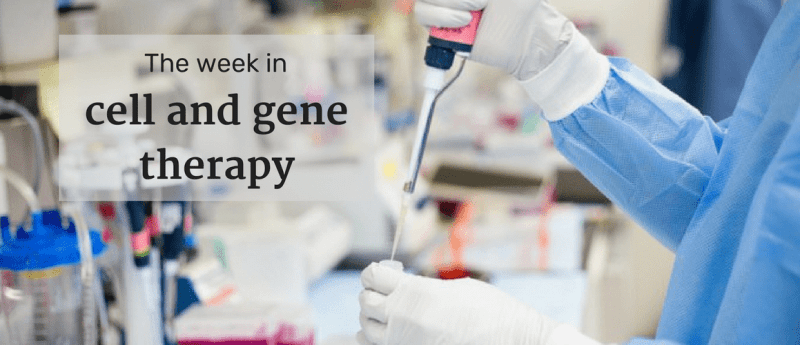Cell therapy weekly: Kiadis Pharma sheds half of workforce after unsuccessful Phase III trial

This week: MaxCyte (MD, USA) and KSQ Therapeutics (MA, USA) will collaborate to advance adoptive cell therapies and Thermo Fisher Scientific (MA, USA) targets viral vector bottleneck with 50,000 sq ft manufacturing facility.
The news highlights:
Kiadis Pharma sheds half of workforce after unsuccessful Phase III trial
MaxCyte and KSQ Therapeutics will collaborate to advance adoptive cell therapy
Thermo Fisher targets viral vector bottleneck with new manufacturing facility
Kiadis Pharma sheds half of workforce after unsuccessful Phase III trial
Kiadis Pharma (Amsterdam, Netherlands) has announced that, following an unsuccessful Phase III trial of their investigational, allodepleted T-cell immunotherapy (ATIR) product — ATIR101 — they will be focusing on natural killer cell therapy candidates. The move comes alongside a company restructure, which will reduce costs and halve their workforce.
Arthur Lahr, CEO of Kiadis Pharma, commented: “…we reviewed progress of our Phase III study, which was designed to show superiority of ATIR101 over the post-transplant cyclophosphamide (PTCy) protocol…a higher percentage of patients than expected dropped out of the study before receiving ATIR101. We subsequently collected additional recent external data, which show that outcomes with PTCy have better survival and lower severe [graft-versus-host disease] than literature showed when we designed and started the Phase III study. Based on these data…in the best interest of patients, we have therefore taken the decision to discontinue the ATIR101 study with immediate effect and are proceeding with close down activities.”
MaxCyte and KSQ Therapeutics will collaborate to advance adoptive cell therapy
MaxCyte (MD, USA) and KSQ Therapeutics (MA, USA) have entered into a development and commercialization agreement to develop adoptive cell therapies for the treatment of PD-1-refractory solid tumors. The collaboration will see KSQ gain non-exclusive clinical and commercial use rights to MaxCyte’s Flow Electroporation® technology and ExPERTâ„¢ instruments. MaxCyte will benefit from milestone payments and licensing fees.
“Adoptive cell therapies hold significant potential to improve outcomes for patients that are otherwise unresponsive to current treatments,” said David Meeker, CEOof KSQ. “MaxCyte’s technology will play an important role in enabling the further development of our engineered tumor-infiltrating lymphocyte programs as we work to bring best-in-class, cell-based medicines forward for difficult-to-treat solid tumors.”
Thermo Fisher targets viral vector bottleneck with new manufacturing facility
Thermo Fisher Scientific Inc. (MA, USA) has opened a new large-scale viral vector manufacturing facility in Lexington (MA, USA) to target the viral vector “bottleneck”. The 50,000 sq ft, US$90 million facility will house a contract development and manufacturing organization, and over 200 staff.
“The demand for new gene therapies has outpaced capacity, and we’re in a unique position to partner with our customers to help them accelerate development and production of medicines that will ultimately benefit patients suffering from rare diseases,” said Michel Lagarde, Executive Vice President of Thermo Fisher Scientific. “We’re also excited to create 200 new jobs that support the thriving biotech industry in Massachusetts.”
For more weekly cell therapy news, read previous editions of the cell therapy weekly.
Have any additional questions about this story? Ask us in the comments, below.
Find out more in these top picks from the Editor:
- Addressing the challenges of cell and gene therapy manufacturing in process development: an interview with Behnam Ahmadian Baghbaderani
- Industry updates with Dusko Ilic: July 2019
- Cell culture media: ask the experts